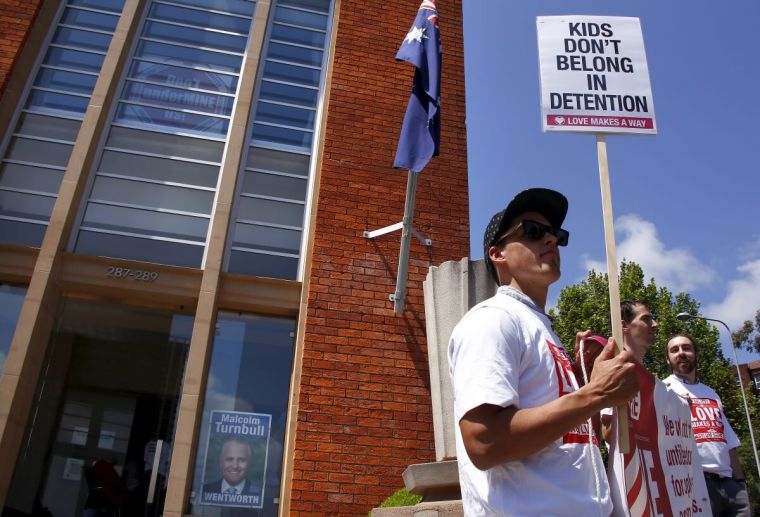Australian churches invoke ancient right of 'sanctuary' to protect asylum seekers
Ten Australian churches, including Brisbane Cathedral, have offered sanctuary to asylum seekers facing deportation to offshore refugee camps.
The action marks a stand against the nation's immigration rules, despite risks of penalties against them.

The Anglican Dean of Brisbane, Peter Catt invoked the historical principle of sanctuary by offering refuge to those facing deportation back to a Pacific island camp in what he described as "tantamount to state-sanctioned abuse".
The High Court ruled that Australia's policy that sends asylum seekers to government-funded offshore processing centres is constitutional.
Among the 260 refugees facing deportation, who were brought to Australia from Nauru predominantly for medical reasons, are 37 babies born in the country and 54 other children.
The deportation "fundamentally goes against our faith", Catt said.
"We offer this refuge because there is irrefutable evidence from health and legal experts that the circumstances asylum seekers, including children, would face if sent back to Nauru are tantamount to state sanctioned abuse," he said.
"Our church community is compelled to act, despite the possibility of individual penalty against us. It is an extraordinary step. It is a step that will attract the attention of church communities around the world."
The symbolic impact may be the most significant, as only around 30 of the asylum seekers concerned were living in the community and able to go to the church. The vast majority were being held in mainland Australian detention centres pending the High Court decision.
Ninety-five per cent of the children held at the Wickham Point detention facility, one of the major mainland centres, have showed risks of post-traumatic stress disorder, according to a medical report commissioned by the Australian Human Rights Commission.
"We were deeply disturbed by the numbers of young children who expressed intent to self-harm and talked openly about suicide, and by those who had already self-harmed," said Dr Hasantha Gunasekera, part of the team who wrote the report.
The UN has also expressed concern over the ruling, and implored the government to "refrain from transferring all concerned individuals to Nauru".
However, public opinion is broadly with these tough policies. The headline of one of Australia's major newspapers, Sydney Daily Telegraph, on Thursday morning was "Turn Back the Kids".
Immigration Minister Peter Dutton has defended the policy, stating that the number of children in detention had decreased substantially because of the government's policy.
He told the Australian Broadcasting Corp (ABC) that no child would be "put in harms' way".
"Many of the advocates you speak of are completely opposed to any border protection measures at all," he said.
The concept of sanctuary that the churches are offering is one yet untested in Australia. It was "certainly alive in the middle ages", Catt told ABC. Church authorities could "really grant [people] safety against the civic authorities", he said.
"It was a way of saying I'm entering into God's territory, away from the civic authorities that are oppressing me, and the oppressors generally accepted that the church could offer sanctuary to people."
He continued: "Sanctuary was a concept that was certainly alive in the Middle Ages when people could go to a church, and particularly to a cathedral, and claim sanctuary and the church authorities could really grant them safety against the civic authorities."
Although it is yet to be tested under Australian law, he said: "My hunch is that if the authorities chose to enter the church and take people away, it would probably be a legal action.
"So this is really a moral stand and it wouldn't be a good look, I don't think, for someone to enter a church and to drag people away."











